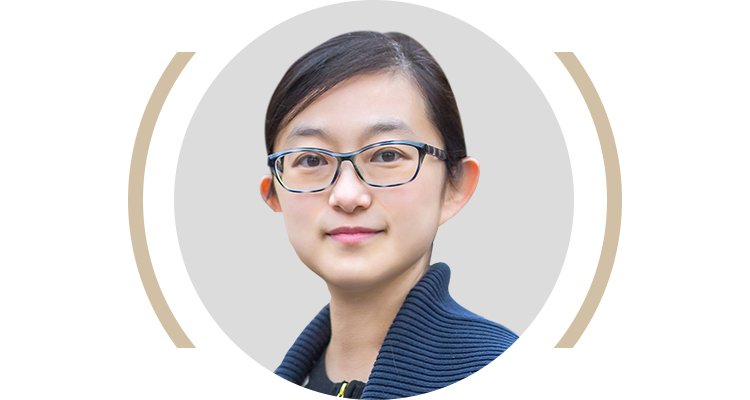There are hundreds of millions of mobile
users in China, and each of them could have tons of apps installed. How do you accurately recommend and distribute content and advertisements for specific
individuals
The answer to this question lies in a research subject called information
mining, an interdisciplinary domain related to both statistical physics and
information sciences. Linyuan Lü, a Professor at the Institute of Fundamental
and Frontier Sciences of University of Electronic Science and Technology of
China, as well as the deputy director of the Alibaba Research Center for Complexity
Sciences, is a pioneer in this field. Her original works have contributed to
many aspects of information retrieval and mining.
During Lü’s Ph.D. period, she first studied in the field of information economy
with Professor Yi-Cheng Zhang of the University of Fribourg, and later turned
to information mining on complex
networks, particularly focusing on the research of link prediction,
recommendation algorithms, and node ranking problems. After graduating in 2012,
she joined in the Big Data Hyper in
China to create real-world applications based on her research.
Lü transformed many theories and methods in complex network information mining
into widely used commercial applications. For instance, her team collaborated
with China Mobile to design a personalized recommendation system for mobile
reading. So far, the system has covered more than 25 million mobile users in
Hangzhou, Zhuhai, and Changsha, providing them with personalized services. The
overall recommended reading feeds has exceeded 500 million times with a much
higher efficiency compared to other similar systems.
Another creative innovation of Lü’s is dealing with the mobile addiction problem
from the perspective of complex networks. Her team has proposed a network-based
preferential diffusion algorithm to improve the diversity of recommendations as
it is critical to the sustainability and vitality of the system. Through
network information mining, the recommender system could adjust recommended
content to better enrich users’ preferences and as a result, make users less
addicted to a single type of content. Meanwhile, this new algorithm can also
improve the accuracy and efficiency of the recommender system.
In addition to the above commercial applications, the concept of complex
networks can be combined with fields like AI, management, biology, public
health, and transportation. This could potentially lead to better solutions for social network censorship, abnormal brain function detection, gene prediction,
food safety, and other applications.
Lü believes that the combination of AI and network science, as well as other aspects,
can potentially become a promising research area in the future. Its application
scenarios will be further expanded as network science is a very important
methodology that provides a new perspective on how to solve interdisciplinary
problems.




